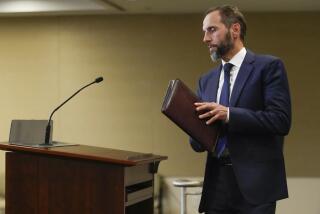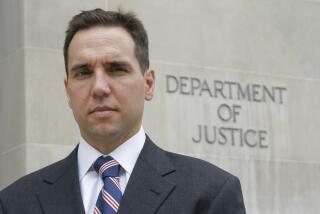What’s a ‘Special Master’? Often, a Court’s Eyes, Ears
- Share via
In its court filings contesting the Florida election Monday, the Gore campaign sought appointment of a “special master”--a monitor whose job it is to help arbitrate a particularly thorny legal dispute.
“In essence, what Gore is saying is that we can’t have the court sit down and count every vote. So we’ll have an arm of the court do it,” said William Rubenstein, acting professor of constitutional law at UCLA.
“What a special master does is help the court develop the facts and frame the issues to be decided, not to make the decision but to assist the judge in areas of specialized knowledge,” Rubenstein said.
Historically, special masters have served as judges’ eyes and ears, delving into complex and time-consuming issues as a court’s de facto investigator while the judge continues to deal with other cases.
Federal courts have relied on special masters in everything from the Microsoft antitrust case to the state lawsuits against the tobacco industry.
A special master helped come up with a settlement plan under which Swiss banks will pay Holocaust survivors who lost money in Swiss accounts during World War II.
Los Angeles city officials accepted a consent decree earlier this month governing police reforms only after being assured that a federal overseer would not have a special master’s powers.
But one was used in the 1970s desegregation battles in the Los Angeles Unified School District.
And in Florida, the Legislature in 1994 took the unusual step of using a special master to unravel conflicting versions of the 1923 destruction of Rosewood, a black community, by a white mob.
The incident led to a claim of $7.2 million against the state by the survivors and their descendants.
Larry Simon, a professor of law at USC, speculated that a special master in Florida would require a team of assistants to help sort through the ballots.
More to Read
Get the L.A. Times Politics newsletter
Deeply reported insights into legislation, politics and policy from Sacramento, Washington and beyond. In your inbox twice per week.
You may occasionally receive promotional content from the Los Angeles Times.











